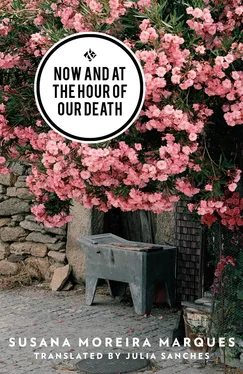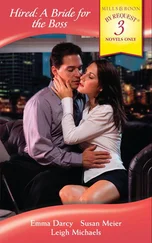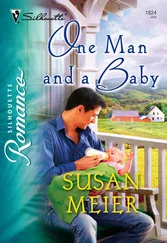HER: They killed them.
HIM: …And they deserved no less, and I’m speaking against our race here. I was the first one there to start paying the men every two weeks. A man who’d been there a long time told me: you must be made o’ money to be paying them every two weeks and I said to him: I’ll live my life as I please, and you can do the same. For the folk who’d lent me money first I’d even take along my oxen and men to do the sowing, I had forty to fifty folk working for me at times, but I’d say to my men that the wheat was for me ’cause the men didn’t want to work for them…
HER: We didn’t have any enemies. In the end, they just kept saying to us: you can’t go, boss.
HIM: …And they’d tell me: even if we wanted to speak up, we can’t — we go talk to the chief, but the white man walks in and we’re left at the door.
HER: I never had no trouble while I was on that farm. The black women always came to me to sell their goods for sugar. They’d bring me half a dozen eggs, or fruit they’d picked in the bush for the boys. There was this fourteen-year-old who worked for us, he looked after the pigs and the chickens and I’d tell him, Carlos, you go on and talk to them ’cause I don’t know Umbundu. Ask them how much the eggs cost. Nothing, he’d say, it’s just breakfast for you, Senhora.
HIM: Then they all killed each other.
HER: And it still hasn’t been settled, it still ain’t really settled.
HIM: The young folk in Luanda are rebelling. The south is calm. Our youngest is there and our oldest son is going there again soon.
HER: They’re starting a business, the two brothers. My youngest son already has his Angolan citizenship. He was there for a month three years ago, and that’s when he got his citizenship.
HIM: He threw a party there in the quimbo , on our land. He got 150 folk together and spent like a king. And he even made a movie of the party and brought it here to show us. Everyone dancing, the old folk talking about me. They had this nickname for me, Berimbindo — ’cause it’s like bem-vindo, welcome, so they called me Berimbindo. Did Berimbindo uafa ? Meaning, did he die? No, my sons said. Berimbindo is here in my heart, they’d say. I cried watching that movie.
HIM: She even had the smarts to bake a batch of bread before we left. We managed to fill our bellies even then.
HER: I baked a whole bag of bread.
HIM: And that was real bread. First-rate flour, made by hand…
HER: We left the key to our house with our buddy — we were his daughter’s godparents.
HIM: He was mulatto anyway.
HER: We left him the cattle, the goats, the tractor — everything!
HIM: And seeds!
HER: Yeah, seeds. We said to him: the land here’s sown, so go and harvest some for yourself and then when I come back, all you gotta do is give me the seeds so I can sow too. Everything was just right, we had worked everything out real nice, but then he didn’t write us and we never did write him…
HIM: The mail was cut off then .
HER: … They didn’t let mail get in or out and we never heard from him again.
HIM: Then a black came through and killed him, out of envy. And our goddaughter, she was eleven years old, lightning struck our house and killed her. It wrecked most of our home.
HER: And then the whole house fell down. Our kids, they took a picture of it for us and then showed it to me — the only thing that survived was the stove chimney.
HIM: It was October when we got here. Our eldest son stayed behind to load the last of the containers onto the boat. It was real little, almost nothing, really, but still my most valuable one got stolen. I even went down to Lisbon, to the Cais da Rocha… but I couldn’t find it. Folk welcomed us here, in the village. They brought us nine bags of potatoes — and that was just the potatoes. I knew what folk said about us retornados coming back from Africa, most of them.
HER: And some still say it today.
HIM: I miss looking out at my land. Sometimes I’d go outside just to look at everything I’d planted.
HER: We had a big farm. We’d look at treetops out there in the distance, and it was all ours. If I was twenty years younger, I’d be back there, sure I would. The weather was real good where we lived: none too hot, none too cold. And the land is blessed — everything we planted grew. Here, all the work I’ve got… Just today I went and checked on the beans and they’re no good, they’re falling off their stalks. The weather here spoils everything.
HIM: I don’t want to go see it now. I cared for that land — and the thought of going there and seeing how it is now… But that’s life… When good fortune finally smiles down on you… Here, I at least had a few things to my name, so I said, alright, this is where we’ll stay. Now, my sons, they say to me, we shouldn’t’ve come up here, the ones who stayed in Lisbon, they’re doing better for themselves, but my things were here, my olive trees, my vegetable gardens — I had a place to live here, where else could I have gone?
HIM: I stopped working a year and a half ago, when this trouble with my bladder started. I used to make my own wine, grow my own potatoes and olive trees. I still got some olive trees, but I don’t look after them no more. It ain’t worth it. Growing things today, no matter what you try to grow, it just don’t pay. I don’t know where this country’s heading. They’re encouraging folk not to work, not to produce…
HER: Now everyone’s got their 230 or 240 euros…
HIM: But there’s lots of poor folk, right?
HER: …I never thought they’d give me the little they do. So long as we keep getting the small pension they give us…
HIM: We’ve made our nest. It’s the bird that’s dead. Its wings won’t fly.
HER: He’s always complaining. He’s been complaining for twenty years now! I’m sicker than he is, but you don’t see me kicking up a fuss.
HIM: No one believes in old sufferings.
HER [laughing]: You’re an old man now, you can’t get no older than old. It’s a sad life for a couple of folk like us. Our kids come over for the August festival, but then they go back to their own lives. The two of us, we’re stuck here, but at least we can still talk to each other. If there was just one of us left, we’d have nothing to do but stare at the walls.
HIM: I’m scared she’ll die first. That’s what really haunts me.
HER: I’m eighty-five already, going on eighty-six. My legs grow heavier each day. They don’t want to walk. I got pain and pain and more pain. But we just gotta keep on.
HIM: If she goes first, I don’t know what I’ll…
HER: Oh, you’ll go to an old folks’ home. What else can you do? And if there ain’t a bed for you there, you can just come on here and sleep at home.
HIM: A man gets used to sleeping in a good bed, to having decent clothes and a decent towel, to sleeping next to his wife…
HER: What he don’t want is to die.
HIM: …What’s an old man to do, sick and alone?
HIM: Lazarus had been dead for four days. And Jesus said: let’s see what we can do. And He said: I am life and I am death, do you believe? And He said: move that rock. And then He said: Lazarus, rise! And Lazarus rose. And so did Jesus, and they say we all rise again. Lazarus and Jesus came back after just two or three days, but we only will after millions of years… What I learned in the cradle I’ll only forget in my grave. My parents gave me this faith, it’s the only one I know. Me, I think there’s something after death. It’s just this feeling I got. They put so much fear in us — why’d they have been fooling us? I don’t know, though. The dead don’t write, they don’t call — there’s just no way of knowing.
Читать дальше












